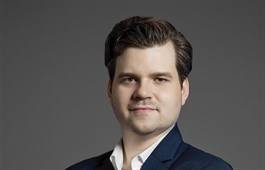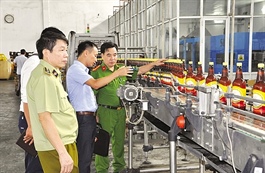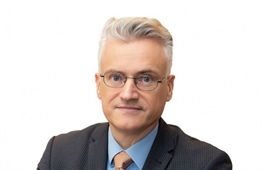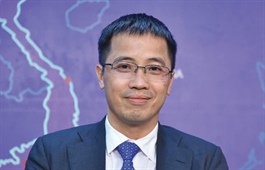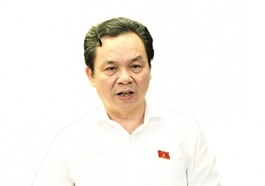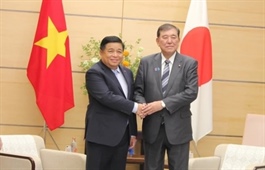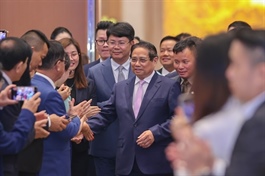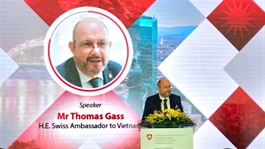German groups seek simplified processes
German groups seek simplified processes
German companies have expressed ongoing concerns over long-term policy unpredictability while operating in Vietnam.
At its latest roundtable held on May 21 by the German Business Association in Vietnam (GBA), major challenges facing member companies were raised, including fluctuating demand, especially among firms indirectly connected to the US market; legal and policy unpredictability, making long-term planning difficult; and logistics and customs hurdles, including high import taxes and complex procedures.
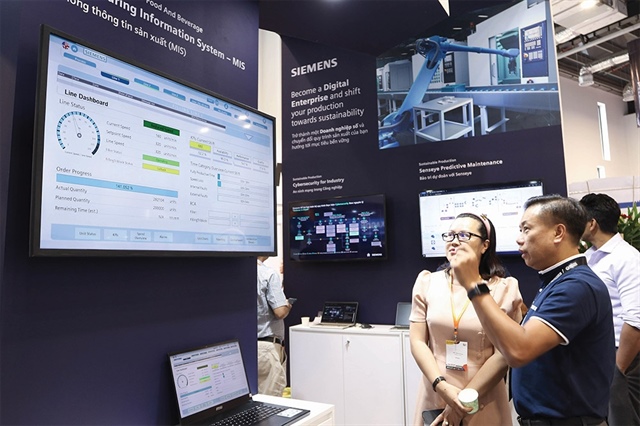
German groups seek simplified processes, Photo: Le Toan |
Additional issues mentioned at the meeting included labour shortages, delayed VAT refunds, and work permit issues for non-Vietnamese staff, which remain persistent barriers for foreign-invested enterprises. They also expressed the need for mechanisms to support short-term training and internal exchange programmes across subsidiaries of multinational corporations.
A representative of the GBA told VIR, “These are the key challenges businesses face when shifting supply chains and global uncertainties. However, the majority of our members still expect their business situation to improve in the next 12 months, reflecting cautious optimism amid ongoing uncertainties.”
The event attracted the participation of many major German companies in Vietnam, including Adidas, Allianz Partners, BASF, Bayer, Mercedes-Benz, Puma, and STADA Pymepharco. The discussions marked a significant milestone in the series of activities celebrating 50 years of diplomatic relations between Vietnam and Germany and 30 years since the GBA was formed.
As highlighted by a representative of Adidas at the roundtable, there currently exists no adequate framework for sending personnel from other countries to Vietnam and vice versa for short-term skill development and cultural immersion.
“Visa and work permit regulations remain major hurdles for advancing international talent exchange and nurturing high-quality human resources,” the representative said.
Current legislation rules that work permits in Vietnam can be processed in only a couple of weeks, but tightened aspects on notorisation and degree qualifications since 2020 have been strenuous for both companies and the workers involved.
Bruno Jaspaert, chairman of the European Chamber of Commerce in Vietnam, said, “It took more than six months of paperwork and simply waiting in order to bring in a logistics expert with 25 years of experience, just because he had a degree in biology. That is not just a cost burden, it slows down innovation and disrupts business operations.”
Addressing the roundtable, Ambassador of Vietnam to Germany Nguyen Dac Thanh reaffirmed Vietnam’s commitment to deeper global integration and its active participation in a transparent and rules-based international trading system. Vietnam’s ongoing high-level diplomatic efforts aimed at mitigating external economic risks and diversifying export markets, he said.
“The government’s ongoing efforts to streamline administrative procedures to foster a more business-friendly environment, and simplifying labour and visa requirements for training programmes, is part of a broader effort to build an open, equitable, and globally integrated national training system,” Thanh said.
According to the GBA, German businesses are already contributing to Vietnam’s sustainability goals through investments in clean energy, Industry 4.0, and circular economy models.
GBA chairman Alexander Ziehe said, “Local authorities must accelerate administrative reforms, particularly in customs, tax, and labour management, to lower compliance costs, as well as maximise the EU-Vietnam Free Trade Agreement’s (EVFTA) benefits to expand market access, while improving infrastructure, workforce training, and regulatory transparency to create a more stable and attractive investment environment.”
German companies have been succeeding in Vietnam and expanded significantly in recent years. Ventilation manufacturer Ziehl-Abegg in June 2024 put into operation a factory for spare parts and components of ventilation systems in the southern province of Dong Nai.
In March, pharma manufacturer STADA Pymepharco signed an MoU on strategic cooperation with Trung Son Pharma, one of the biggest Vietnamese pharmacy chains today, to expand the healthcare product portfolio of STADA. STADA has held a controlling stake in Pymepharco since 2020.
In May, the company welcomed some of its key leaders to Vietnam, including its executive vice president and commercial lead for Southeast Asia. During the trip, they had official meetings with Phu Yen provincial leaders and attended various health conferences.
According to the Spring 2025 AHK World Business Outlook survey, 80 per cent of German companies in Vietnam rate their current business situation as good or satisfactory, with 38 per cent planning to increase investment, and 43 per cent expecting to expand their workforce in 2025.
Key sectors attracting great attention include renewable energy, high-tech manufacturing, automation, and vocational training. With the EVFTA and improving infrastructure, many German companies view Vietnam as a strategic regional hub for their operations.
Looking ahead, cooperation between Vietnam and Germany will focus strongly on innovation, green growth, and digital transformation, according to GBA chairman Ziehe.
“German companies have contributed actively to Vietnam’s sustainable development goals through investments in clean energy, Industry 4.0, and circular economy models. At the same time, Germany’s dual vocational training model is being implemented in Vietnam to upgrade workforce skills and lay a solid foundation for the country’s long-term competitiveness,” he noted.
- 08:00 03/06/2025







